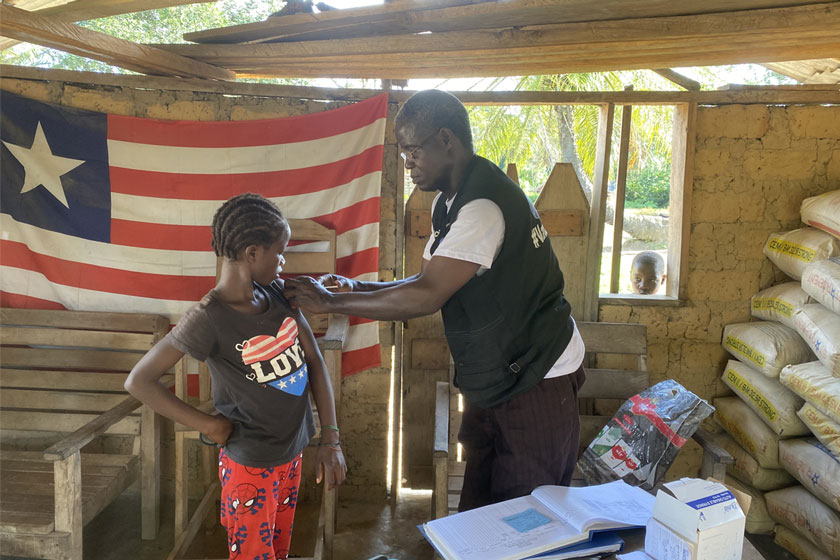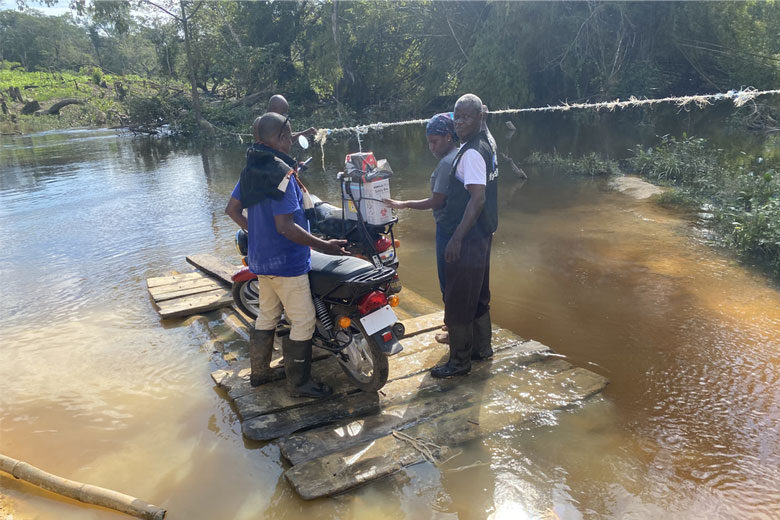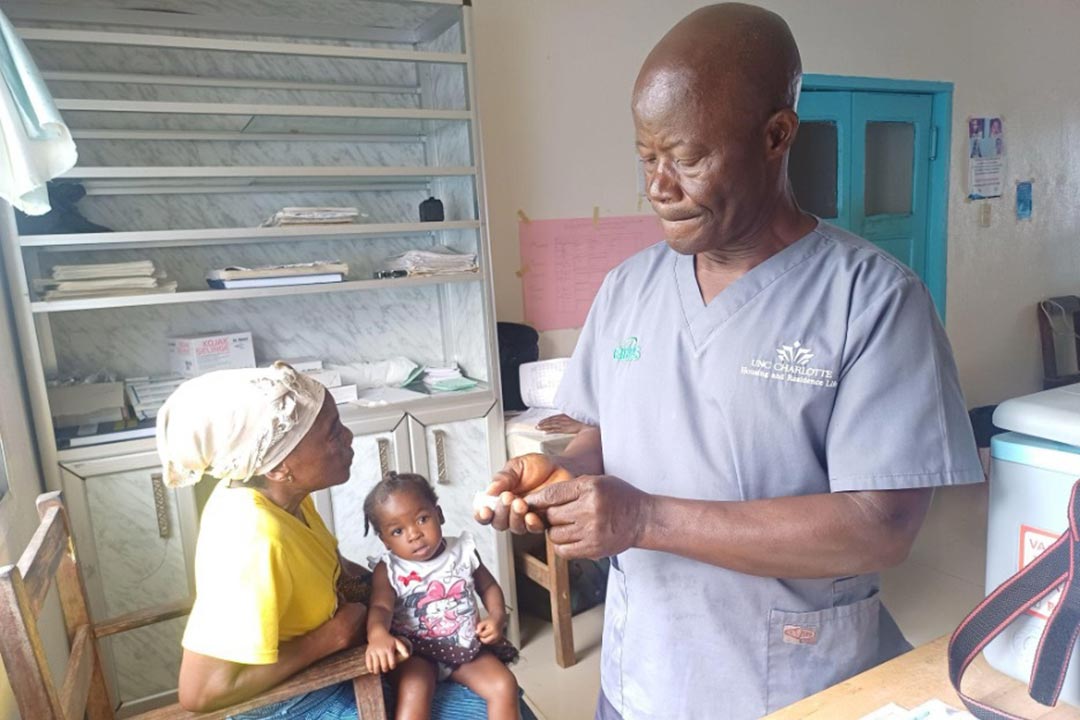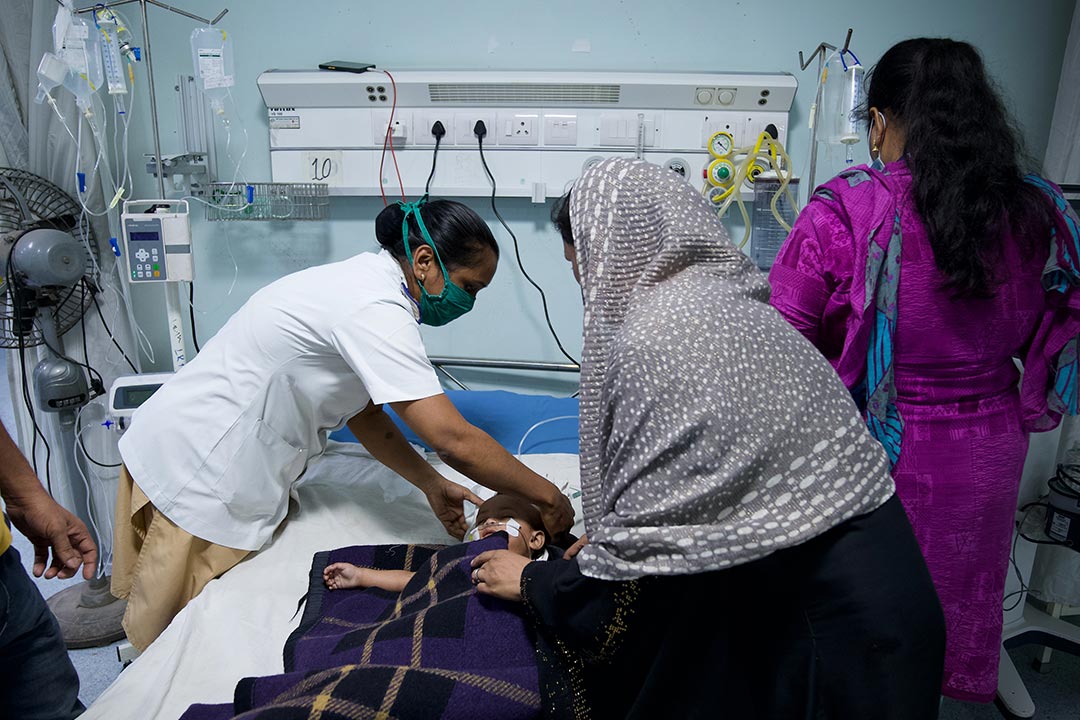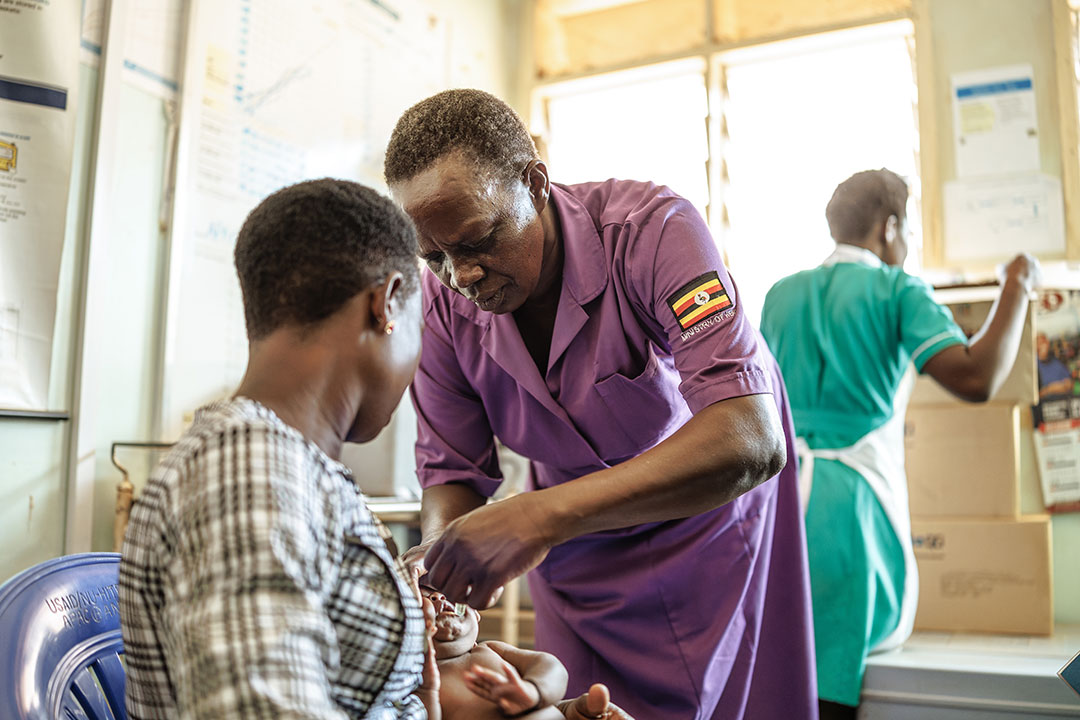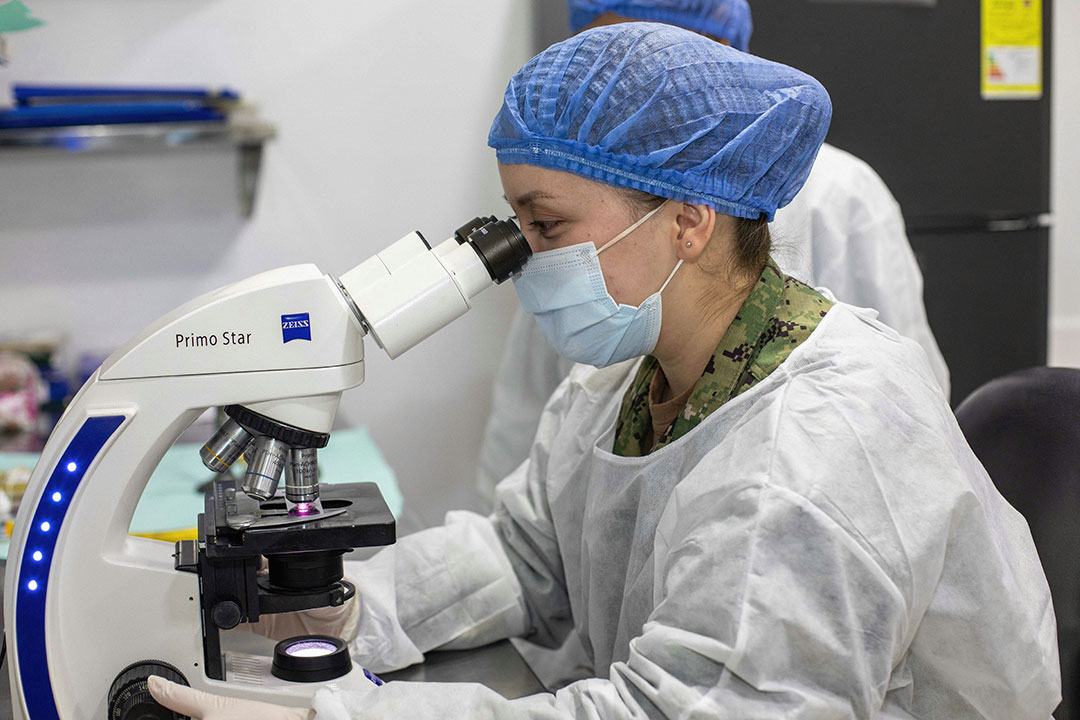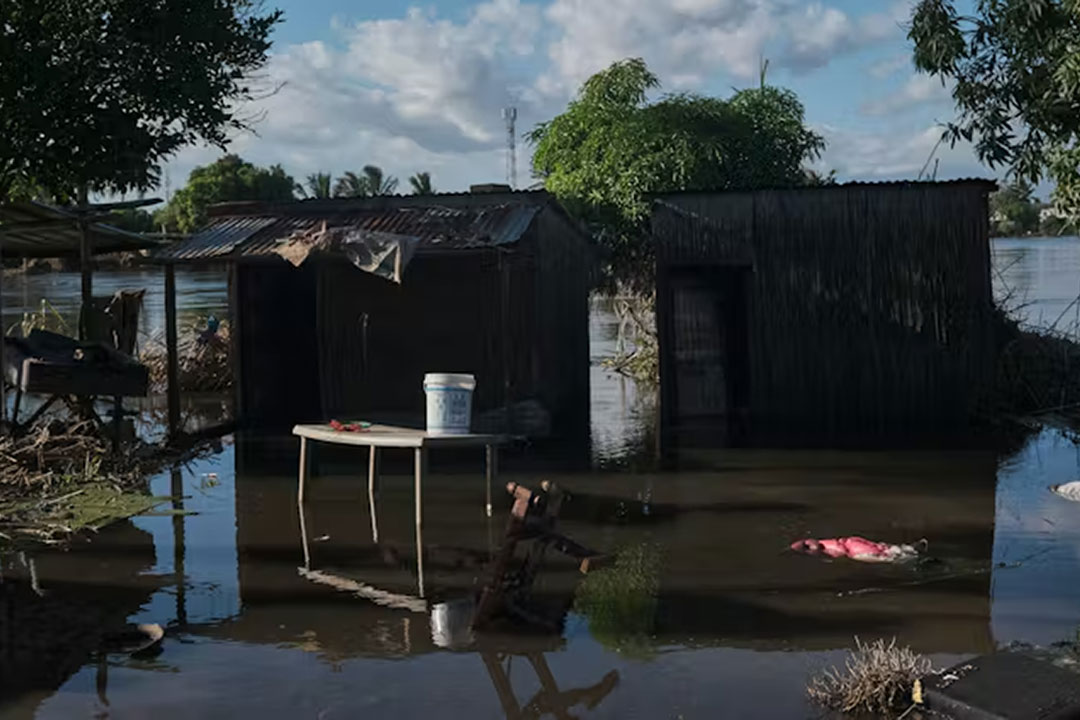Three years on from a deadly measles outbreak, Liberian parents are choosing vaccination
Liberia is no stranger to healthcare challenges, but a mass immunisation campaign targeting 800,000 children hopes to ensure that measles outbreaks are a thing of the past.
- 8 August 2025
- 5 min read
- by Tina S. Mehnpaine

Esther Sackie hoists her baby up against her shoulder as she walks slowly through the hallway of the Star of the Sea clinic in West Point, a slum community in Liberia. The mother-of-two, who sells fresh fish at the community market for a living, is here to present her nine-month-old daughter for the first dose of measles vaccine.
The memory of a frighteningly close call all but guaranteed this visit. During Liberia’s large-scale measles outbreak of 2022, her own son, now five years old, nearly died from the infection. “The vaccine is very good,” Sackie says. “It can help to protect the baby, and it is free.”
Children under five years of age are the main victims of measles, a highly contagious illness that remains a leading cause of paediatric mortality. The viral disease remains prevalent in Africa, with half of all large outbreaks occurring on the continent.
It sometimes seems that Liberia’s fragile healthcare system is perpetually building back from a destabilising shock. The country’s recent history has been chaptered by a couple of civil wars, history’s worst Ebola outbreak, and the COVID-19 pandemic. Resources remain stretched: Liberia has just one physician for every 20,000 people, a far cry from the World Health Organization’s recommended ratio of one doctor per 1,000 people.
That’s made both preventive healthcare and community clinics like the Star of the Sea an even more critical lifeline for parents. Accessible and easy to reach, the clinics offer a safe space for mothers like Favor Weah to walk in with their babies for the vaccines.

“Measles is dangerous,” says Weah, visiting with her nine-month-old son. “Vaccine help will keep your child safe. That is why I brought my child for the vaccine.”
“Let every mother bring their child for this vaccine,” she urges. “Don’t let nothing stop you.”
Pandemic setback
In line with WHO guidance, the Liberian health system recommends two doses of the vaccine as part of its routine childhood immunisation schedule. The first dose is typically administered at 9 months and the second at 15 months, and the two doses together are 97% effective at preventing infection.
But amid COVID-19, Liberia’s sub-optimal vaccine coverage rates plunged: where 74% of eligible children had been protected against measles in 2018, in 2021, that number stood at just 58%. Those dropping numbers all but foretold the outbreak that followed the year after.
Have you read?
In response to the outbreak, the government launched a mass vaccination campaign targeting nearly 800,000 children. A number slightly higher than the target – indicating that more eligible children were found than had been projected during planning – were reached.
That meant nearly a million more families could breathe a little easier. As Sackie explained, a vaccine is not just a life saved – but time saved, worry saved, and even money saved. “When your baby is well, you can be able to sell and do other things without worrying,” she told VaccinesWork.
Efforts pay off
In densely populated areas like West Point, where many mothers are engaged in trades to provide for their families, keeping up with the vaccine schedule can be difficult. The need to earn a living can sometimes take precedence, causing mothers to miss vaccination appointments. Limited health knowledge and citizens’ trust are other constraints the Ministry has been working to overcome as part of its five-year National Immunization Strategy, launched in 2023.
In fact, Saturday Wesseh, head vaccinator at the Star of the Sea clinic, said making sure a child gets their second dose of measles vaccine can often be more difficult than mobilising the parents to bring in the babies for the first one.
Measles vaccination rates have picked up across the country. Since coverage with the first dose of the measles vaccine dipped to just 58% in 2021, immunisation coverage has expanded massively, holding steady at 82% in 2023 and 2024.
Undeterred, Wesseh – affectionately known as “children doctor” in the community – says his team are engaging in “every means” to ensure that the vaccine reaches all children in the clinic’s catchment area. Completing the two-dose protocol involves “continuous follow-up” with the mother, he says. He conducts weekly outreach sessions to visit mothers at home, and follows up on the phone.
But there are environmental challenges, too. “One of our challenges has been moving in the field during the rainy season,” he said. “Looking at the community, no road and structure of the community, it can be difficult for us to move around.”
Still, his team’s determined efforts seem to be paying off: Wesseh says vaccination has helped to reduce the surge in measles in the area. In fact, measles vaccination rates have picked up across the country. Since coverage with the first dose of the measles vaccine dipped to just 58% in 2021, immunisation coverage has expanded massively, holding steady at 82% in 2023 and 2024.
There’s further to go: 95% of a given population need to be fully immunised against the measles in order to block transmission altogether. But 82% coverage against the measles is Liberia’s high-water mark, and an incontrovertible sign of progress.
And Wesseh also says he’s noticed a change in attitudes underlying the change in the extent of protection. Mothers are growing “more confident” to reach out proactively for vaccines, he says.
